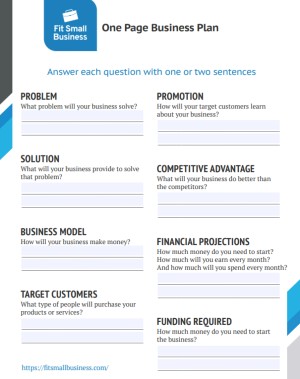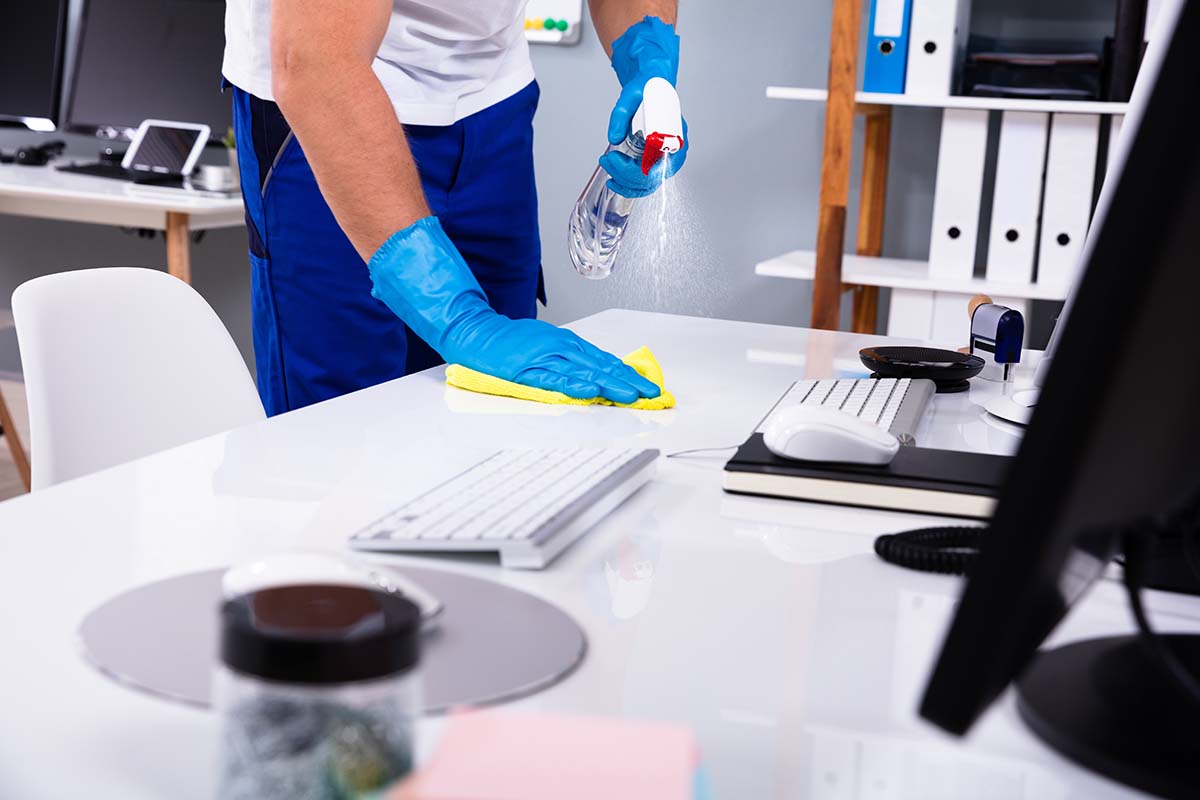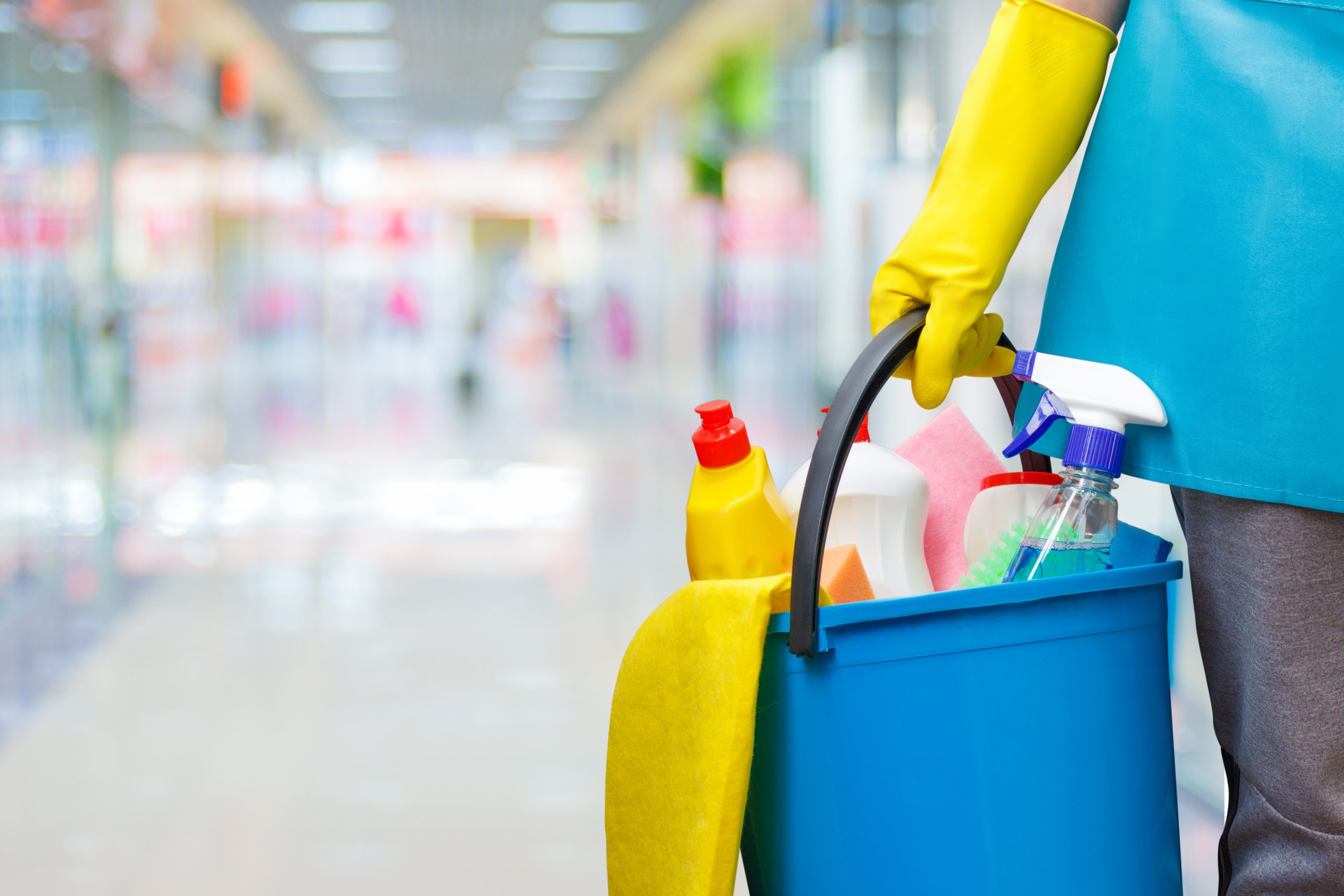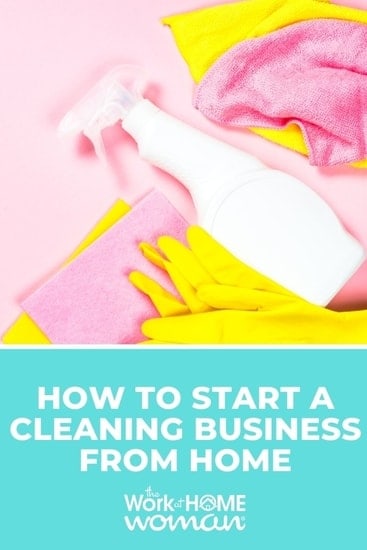
Tip: Don’t try to save money by skipping this step! A cleaning business carries a risk—you’re using chemicals in the homes of your customers. If you, for example, ruined or broke something in a customer’s home, they could sue you for damages. Without a legal entity, your personal assets are at risk to cover damages.
From a business perspective, you’ll find less competition in the residential space because there are more customers available. Overall, your choice between residential and commercial depends on your budget for equipment and lifestyle.
Here’s how it works: If an employee steals an item from a customer’s home, the bond company will pay to replace it. The bond company puts your business on a payment plan so you can pay them back over time. This is preferable to a lawsuit or a large payment to the customer.
How can one learn covid-19 recommended cleaning procedures? and is it a certification that one would have to complete?
…….Thank you…….
Business License

All cleaning business owners need to register their business as a legal entity. Registering as a legal entity protects personal assets if a lawsuit were to ever occur against the business. Depending on your state, the cost to register a business is anywhere from $40 to $500.
Most cleaning companies don’t provide services to both residential and commercial customers. The specialization is because each provides different services and requires unique equipment. You also need to decide if you’re starting your biz from scratch or purchasing a cleaning-based franchise.
You’re almost ready to accept your first customer! But first, you need to purchase the required equipment to get the job done. We’ve compiled a list of low-cost items to get your cleaning business started on a budget.

The legal parameters around domestic services like house cleaning and babysitting aren’t always clear, especially when the service is just one individual and clients are paying in cash. The amount of registration and income reporting you need to do depends on the extent of your business (namely, your revenue).
If you’re interested in working as a cleaner outside of homes, it’s worth noting that it’s much easier for private individuals to pay other individuals than it is for a business to pay an individual who is not an employee. Business registration and proper tax documentation are particularly important for cleaning services with corporate clients.
Read on to learn everything you need to know about how to start a cleaning business.
You can choose to operate a cleaning business on your own as a sole proprietor or as a partnership with another individual, or you can set up a limited liability corporation if you want to separate your business and personal finances.
Step 4: Plan the business budget

When considering how to start a cleaning business, you might also look into becoming a franchisee of a large cleaning services chain. The benefit here is that you already have built-in brand recognition, policies, and procedures. However, you won't have as much control over your business.
Cleaning may seem like a simple business, but it’s hard work. Before you make cleaning your side job or full-time career, it’s worthwhile to spend a few days “on the job” to ensure you’re cut out for the work.
Even if you rely on clients to find new customers, investing in an online presence for your service benefits your business in the long run. It’s important that current and potential customers can find you online — even if you don’t have a full website. Create a business Facebook page, and keep your contact information up-to-date.
Cleaning businesses range from individual home cleaners to specialist industrial cleaning services. It’s important when figuring out how to start a cleaning business to determine the focus of your service early on because the upfront investment you make depends on the size of your team, the cost of equipment, and competitive rates in your local market. Home-cleaning businesses larger than a few individuals will need more structure than a service you operate alone or on the side of another job.

You don’t need to go out and buy all your equipment right off the bat. You can start with a few supplies and tools and work your way up as you discover what you’re missing.
- Decide on the best payment system to collect client payments (for deposits and full payments) before or after service.
- Research secure and sustainable payment methods that can help you avoid payment failures by offering ePayment solutions, or client credit card vaulting.
- Figure out a plant of attack how to address failed or missed payments with clients either with invoice and payment reminders, or with a simple follow-up after a certain time threshold.
- Plan out appropriate next steps to release clients who are not paying their bills.
- Figure out how you will address breaks and damages with clients by designing a breaks and damages protocol.
- Decide on your protocol for paying for breaks and damages (payment, compensation, etc.).
- Finalize how you will move forward with unhappy clients if you break or damage their property.
- Consider buying insurance to help you cover breaks and damages that exceed a certain amount of money.
The best way to approach equipment is by understanding your core services and what tools you need to do them. Decide how to build your equipment inventory by examining your budget and work your way up. We’ve outlined how to start, and what tools and equipment you can build your business off of.
Check out our comprehensive article now!
- Decide if you’re working full-time or part-time.
- Choose your labor hours and days (i.e. weekdays or weekends, and when you are willing to start and finish working).
- Decide on your work location (by city, mile radius, etc.).
- Decide on your transportation and where you will store your materials and equipment (public transit with equipment at your clients’ homes, your own van, a truck and a trailer, etc.).
- Get your quote template and invoice template ready.
- Prepare your cleaning checklist template using the right software so you can bring it with you to all your jobs.
- Create a system for how you will handle new work requests using online booking. For example, request comes in, document client information, look at schedule, book appointment, proceed with follow-up confirmation email.
Not getting paid is a big deal. If you don’t get paid, you can’t run your business. Period. Sometimes, it’s just a matter of reminding clients who forgot to pay their invoice. However, you need to be prepared to let go of clients who consistently fail to pay you. Here’s how to start:
There are a lot of protocols to consider. We recommend you to focus on the following five points:

As a basic definition, a residential cleaning service specializes in homes and commercial specializes in businesses. But, it gets more complicated. Typically, the residential cleaning business is a lower cost to start
Pls I need a comprehensive note on cleaning business plan idea in PDF format
For example, let’s say your startup costs are $4,000. Regarding monthly expenses, you determine that you’ll spend $1,000 every month, including your quarterly tax withdrawal (about 20% of income).
New cleaning companies definitely need a bond so that a significant expense from a theft doesn’t sink the business. A janitorial bond will cost around $200 per year.
Should You Buy a Cleaning Franchise?

Tip: Don’t try to save money by skipping this step! A cleaning business carries a risk—you’re using chemicals in the homes of your customers. If you, for example, ruined or broke something in a customer’s home, they could sue you for damages. Without a legal entity, your personal assets are at risk to cover damages.
How can one learn covid-19 recommended cleaning procedures? and is it a certification that one would have to complete?
…….Thank you…….
Blake Stockton is a staff writer at Fit Small Business focusing on how to start brick-and-mortar and online businesses. He is a frequent guest lecturer at several undergraduate business and MBA classes at University of North Florida. Prior to joining Fit Small Business, Blake consulted with over 700 small biz owners and assisted with starting and growing their businesses.

However, with the right set of skills, housekeeping can be a lucrative option. It affords you flexibility and the ability to run much of your business from your home.
Many cleaning companies offer franchise opportunities. Here are some to review:
Regardless, even within the residential sphere, there are several areas of focus you could decide to do. Opting to market your services at an apartment complex, for example, may net you more jobs. On the other hand, marketing in an expensive neighborhood may offer fewer, yet higher-paying, opportunities.
You can also advertise your services on social media. Post on your personal page, and ask your Facebook friends to do the same. You can also join local online groups and advertise your services. Just make sure to check the group rules first, and don’t be spammy!
What Do House Cleaners Do?

The cost of items such as your permits, cleaning supplies, and marketing materials will all need to be accounted for. Here’s a helpful article that gives you an idea of how to set a marketing budget.
Despite the high cost, there are benefits associated with buying into a business rather than starting one from scratch. Here are just a few of the benefits offered:
- Brand Name Recognition
- Initial and Ongoing Training
- Opportunity tor Faster Growth
- High-Quality, Done-for-You Marketing Materials
- Potential Increase in Profits VS Self-Employment
- Ability to Build Your Own Team
- Ongoing Support
